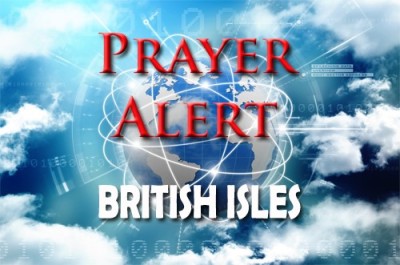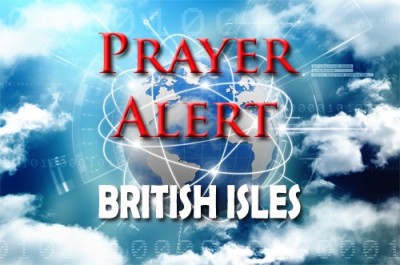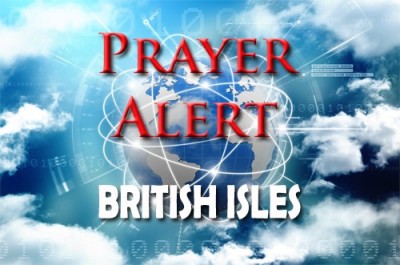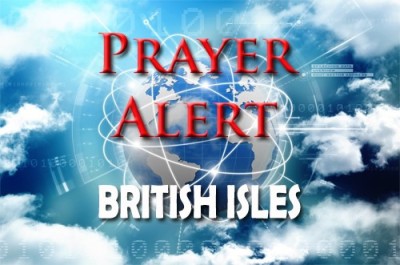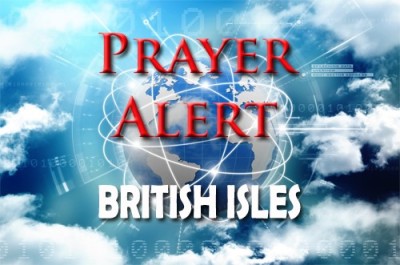Join the Online Global Prayer Movement with the Interseed App!
Imagine thousands of believers from every nation, tribe, and tongue united in prayer—lifting their voices day and night before the throne of God. With the Interseed Online House of Prayer app, this vision is becoming a reality.
Developed to mobilise united, Scripture-led prayer for the nations, Interseed is more than just an app—it’s a growing global prayer family.
Whether you're on a lunch break, commuting, or awake in the night, you can log in and instantly join with other followers of Jesus to intercede for cities, nations, unreached people groups, and urgent needs.
At the heart of the app is the Prayer Wall—a live feed where believers post real-time prayer requests and praise reports. You can respond with a tap, adding your voice to prayers already rising like incense before the Lord (Revelation 5:8). Every “amen” is a vote of faith in God's power to move.
You’ll also find daily prayer points, themed prayer rooms, and video devotionals from prayer leaders worldwide. Whether you're passionate about revival, mission, justice, healing, or the next generation, there’s a space for you to engage and grow in your calling as an intercessor.
Dr. Jason Hubbard, Director of International Prayer Connect, says:
"We’re witnessing a new era of global, united prayer—Interseed is helping us connect and pray as one Body across time zones and cultures."
We invite you to download the app, create a free account, and take your place in this extraordinary, end-time movement of prayer.
✅ Post your own prayer requests
✅ Pray for others and mark them as prayed for
✅ Join virtual prayer rooms focused on strategic regions
✅ Receive real-time notifications for urgent global needs
✅ Be strengthened and encouraged through community prayer
Let’s fill the airwaves with prayer.
Let’s believe for awakening, revival, and the fulfilment of the Great Commission in our day.
Download the Interseed app today on iOS or Android
Visit https://interseed.io to learn more
Together, let’s build a canopy of prayer across the nations - until the earth is filled with the knowledge of the glory of the Lord!
At a recent meeting in Washington, Grace Jin Drexel shared the moving story of her father, Pastor Ezra Jin, imprisoned in China for his Christian faith. He was arrested in October alongside 27 other leaders from Zion Church, in what has been described as one of the largest crackdowns on independent churches since the Cultural Revolution. Grace explained that the arrests are part of China’s aggressive campaign to bring all religious life under Communist Party control. Churches have been forced to remove crosses, replace worship songs with revolutionary anthems, rewrite sermons to align with socialist ideology, and install surveillance cameras inside sanctuaries. Zion Church was targeted after refusing to install facial recognition cameras. Despite closures and intimidation, the church adapted, developing hybrid online and offline gatherings. During the pandemic, this model led to remarkable growth, expanding to over a hundred meeting spaces in forty cities and reaching thousands daily. Grace also spoke of the severe prison conditions facing detained leaders, her family’s separation, and harassment abroad. Yet she testified confidently that God remains faithful, prayers are not in vain, and repression cannot extinguish the Church.
What began as a simple family day at the beach off Western Australia became a terrifying ten-hour ordeal for Joanne Appelbee and her children. Strong winds carried them far beyond the safety of the shore, leaving them clinging to paddleboards as daylight faded. Realising help was needed, Joanne sent her 13-year-old son Austin back to raise the alarm. What followed was extraordinary. After a damaged kayak capsized, Austin was forced to swim four kilometres through rough seas, eventually abandoning his lifejacket and pressing on exhausted and afraid. For hours he prayed, sang Christian songs, and fixed his thoughts on his family, not knowing whether they were still alive. Reaching land at last, he made the call which triggered a rescue operation. Hours later, Joanne and her younger children were found alive, cold and frightened but safe. Though rescuers called his effort 'superhuman', Austin simply described it as doing what had to be done.
Labour MPs have warned that Keir Starmer’s leadership is under serious threat following intense backlash over the appointment of Peter Mandelson as ambassador to the USA. Fury erupted after Starmer admitted he was aware of Mandelson’s past friendship with convicted sex offender Jeffrey Epstein before approving the appointment. A Commons debate nearly ended in government defeat, narrowly avoided through a last-minute amendment forcing the future release of documents relating to Mandelson’s vetting and appointment. Several Labour MPs described a collapse of trust, with some openly questioning whether they could support Starmer in a confidence vote. The mood, described as 'dark' and 'terminal’, has unsettled even long-standing loyalists. MPs warned that once withheld documents are released - currently delayed by a Metropolitan Police investigation - a leadership challenge could follow. Though Starmer has pledged transparency and announced plans to strip Mandelson of honours, and ministers insist he acted in good faith, many MPs fear lasting damage to the government’s credibility and moral authority.
Six Palestine Action activists have been cleared of aggravated burglary following a break-in at a UK subsidiary of Israeli defence firm Elbit Systems near Bristol, but several still face the prospect of retrial on other serious charges. The raid took place in August 2024, when a group used a vehicle to breach the site’s perimeter and entered the building in protest against what they believe is the company’s involvement in supplying weapons to Israel - claims Elbit Systems strongly denies. While three defendants were acquitted of violent disorder, the jury was unable to reach verdicts on remaining charges for others, including grievous bodily harm against one defendant accused of injuring a police officer. Five activists have been released on bail, with one remanded in custody ahead of a further hearing in February. The trial heard conflicting accounts of events, with prosecutors alleging planned violence using sledgehammers, while the defence insisted the group acted defensively and without intent to harm. Outside the court, supporters gathered to celebrate the partial acquittals. The case has raised wider debate about protest, conscience, public order, and the limits of lawful dissent.
Home secretary Shabana Mahmood has defended the government’s proposed immigration reforms amid growing opposition from Labour MPs concerned about fairness and workforce impact. The plans would double the standard qualifying period for permanent settlement from five to ten years, with some migrants—particularly health and social care workers—potentially waiting up to fifteen years. Mahmood argued that record levels of net migration require a firm response, describing settlement as a privilege rather than a right. Government figures show net migration added 2.6 million people to the UK population between 2021 and 2024, with up to 1.6 million projected to qualify for settlement later this decade. Ministers say the proposals allow flexibility, enabling high earners or those on global talent routes to shorten the qualifying period, while benefit dependency could extend it. A consultation is exploring transitional arrangements, though those already granted settlement would not be affected. Critics warn the reforms risk being retrospective and 'un-British’, potentially deterring vital workers and worsening skills shortages, especially in the care sector. The debate highlights ongoing tensions between border control, economic need, and fairness.
A turning point for cancer treatment?
05 Feb 2026A new national cancer plan for England has been published, marking a significant moment after years of calls for a long-term, ambitious cancer strategy. The ten-year plan covers prevention, diagnosis, treatment, care, and research, with a central aim for 75% of people diagnosed with cancer to survive at least five years by 2035. Given that cancer outcomes in England have lagged behind comparable nations, this focus on survival has been widely welcomed, though delivering it will be challenging. Positive commitments include a full rollout of lung screening by 2030, stronger emphasis on earlier diagnosis, and meeting cancer waiting time targets by 2029. The plan also highlights innovations such as AI tools and liquid biopsies, and places welcome priority on children’s and young people’s cancer research. Efforts to reduce risk factors like smoking and UV exposure are noted; however, concerns remain about limited detail on implementation, responsibility, and funding. The plan sets oversight structures and promises progress reviews, but its success will depend on sustained investment, clear accountability, and determined delivery across the NHS and research system. See
The national director of the CofE Evangelical Council, Revd John Dunnett, has resigned as an honorary canon of Chelmsford Cathedral in response to its decision to use the Prayers of Love and Faith to bless same-sex couples. Appointed to the honorary role in 2020 by the Archbishop of York, Dunnett said he did not take the decision lightly but felt compelled to act on matters of biblical conviction. The Prayers of Love and Faith do not constitute marriage services but allow same-sex couples to receive a formal blessing within church settings. Church leaders describe them as a way of celebrating commitment in God’s presence. However, Dunnett stated that their use at the cathedral had deeply alienated those who uphold historic Anglican teaching on marriage and sexuality. He expressed a fundamental objection to endorsing practices which he believes are contrary to Scripture. However, he has said he remains committed to the diocese’s wider life and will continue worshipping, giving, and engaging in synodical processes.



